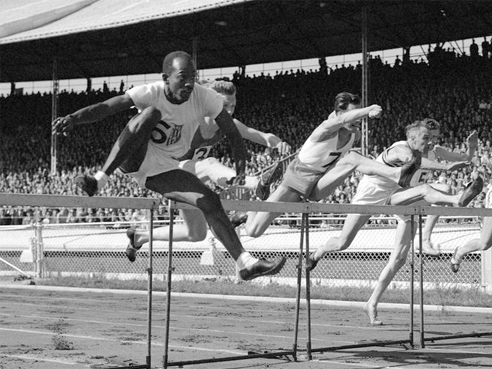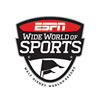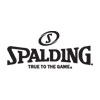AAU Sullivan Award Winner and oldest living U.S. Olympic Champion passes at 96
11/18/2019
Harrison Dillard, two-time Olympic champion (1948, 1952) and 1955 AAU James E. Sullivan Award Winner passed on Friday, Nov. 15.
By - Associated Press - Saturday, November 16, 2019
Original article can be found here.
CLEVELAND (AP) - Harrison Dillard, the former Buffalo Soldier and only Olympic runner to win gold medals in both the sprints and high hurdles, has died. He was 96.
Longtime friend Ted Theodore said Dillard died Friday at the Cleveland Clinic after a fight with stomach cancer. The 1955 AAU James E. Sullivan Award winner as the nation’s outstanding amateur athlete, Dillard was the oldest living U.S. Olympic champion.
“It is a loss for humanity,’’ Theodore said Cleveland.com. “He was an example for all of us, how to live our lives, with never an unkind word for anyone. He was a champion, a true champion.’’
Dillard was a sharpshooter in the last racially segregated unit in the U.S. Army in World War II, serving as a Buffalo Soldier in the 92nd Infantry Division. He returned to Europe a few years later for the Olympics.
In the 1948 London Games, Dillard won the 100 meters in 10.3 seconds and earned another gold medal on the United States’ 400 relay team. At the 1952 Helsinki Olympics, Dillard won his specialty, the 110 high hurdles, in 13.91, and again ran on the winning relay team. Overall, Dillard won more than 400 races - 82 in a row at one point.
Dillard won 11 indoor and outdoor national championships, including the indoor 60-yard hurdles a record eight consecutive years. Dillard won that event at the Millrose Games nine years in a row. He held world hurdles records at 60 yards indoors, and 110 yards and 220 yards outdoors.
A native of Cleveland, Dillard grew up idolizing another Cleveland native, Jesse Owens. Dillard and Owens, who won four gold medals in the 1936 Olympics, graduated from Cleveland East Technical High School and starred at Baldwin Wallace College.
In 1974, Dillard was inducted into the Track and Field Hall of Fame, and in 1983 he became a charter inductee into the U.S. Olympic Committee Hall of Fame.
Original article can be found here.
CLEVELAND (AP) - Harrison Dillard, the former Buffalo Soldier and only Olympic runner to win gold medals in both the sprints and high hurdles, has died. He was 96.
Longtime friend Ted Theodore said Dillard died Friday at the Cleveland Clinic after a fight with stomach cancer. The 1955 AAU James E. Sullivan Award winner as the nation’s outstanding amateur athlete, Dillard was the oldest living U.S. Olympic champion.
“It is a loss for humanity,’’ Theodore said Cleveland.com. “He was an example for all of us, how to live our lives, with never an unkind word for anyone. He was a champion, a true champion.’’
Dillard was a sharpshooter in the last racially segregated unit in the U.S. Army in World War II, serving as a Buffalo Soldier in the 92nd Infantry Division. He returned to Europe a few years later for the Olympics.
In the 1948 London Games, Dillard won the 100 meters in 10.3 seconds and earned another gold medal on the United States’ 400 relay team. At the 1952 Helsinki Olympics, Dillard won his specialty, the 110 high hurdles, in 13.91, and again ran on the winning relay team. Overall, Dillard won more than 400 races - 82 in a row at one point.
Dillard won 11 indoor and outdoor national championships, including the indoor 60-yard hurdles a record eight consecutive years. Dillard won that event at the Millrose Games nine years in a row. He held world hurdles records at 60 yards indoors, and 110 yards and 220 yards outdoors.
A native of Cleveland, Dillard grew up idolizing another Cleveland native, Jesse Owens. Dillard and Owens, who won four gold medals in the 1936 Olympics, graduated from Cleveland East Technical High School and starred at Baldwin Wallace College.
In 1974, Dillard was inducted into the Track and Field Hall of Fame, and in 1983 he became a charter inductee into the U.S. Olympic Committee Hall of Fame.







